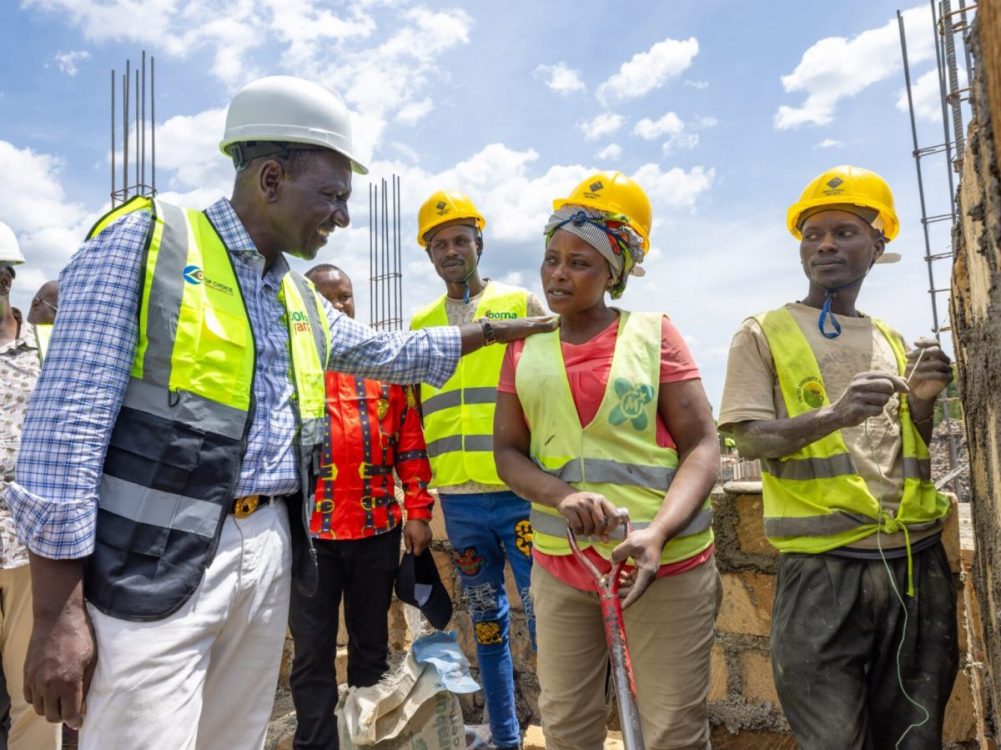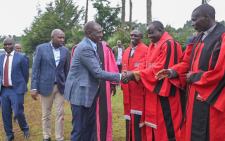Win for Ruto as court okays housing levy

Kenyan workers will contribute 1.5 per cent towards affordable housing programme after the High Court declined to issue orders suspending implementation of the Act which was assented to by President William Ruto on Tuesday.
Milimani High Court Justice Chacha Mwita rejected a plea by five petitioners, led by Nakuru doctor Magare Gikenyi, to issue conservatory orders barring the government from collecting a housing levy of 1.5 per cent of workers monthly pay starting March pending the hearing and determination of their case.
It now means that the 1.5 per cent tax from both the employer and employee will take effect at the end of the month.
However, the judge directed that the lawsuit by Gikenyi, Pauline Kinyanjui and three others be heard in May.
“On the notice of motion and petition dated March 19,2024 upon reading the pleadings, l am satisfied that the petition raises fundamental questions and requires urgent hearing. I direct the pleading be served immediately and highlighting of submissions on May 16, 2024,” Judge stated.
He ordered the five petitioners to serve the Cabinet Secretary of Treasury Njuguna Ndung’u, Cabinet Secretary Lands Alice Wahome, Attorney General and Justin Muturi, Kenya Revenue Authority and 18 other respondents with their pleadings within seven days.
The CSs, AG, KRA and all the respondents were ordered to file their responses within a week.
Petitioners moved to court challenging the implementation of the housing levy, arguing it is unconstitutional.
They contend that the Act should be declared illegal since it is discriminatory as it has barred corporations from owning a house through the affordable housing programme. “Corporations pay tax and contribute to the economy and as such, barring players from the sector from owning a house was discriminatory, “ the petitioners states in their court papers.
They contend that the Act threatens the freedom to own property by proposing to compel civil servants to participate in a mandatory savings scheme disguised as a means to facilitate property acquisition.
In their view, parts of the Act ignores the role of the Kenya Revenue Authority (KRA) in the collection of taxes.
Dignified manner
They accuse the state of avoiding its obligations and instead obligating ordinary citizens to undertake the functions of the state. The recent lawsuit by the five petitioners was lodged after President Ruto assented to the Affordable Housing Bill which was passed by Parliament.
During the singing of the Bill at State House, President Ruto said the implementation of the Affordable Housing Programme will transform the lives of Kenyans at the bottom of the pyramid by creating jobs, providing decent housing and reducing agricultural land fragmentation.
He pointed out that the housing programme will ensure families across the country live in a dignified manner.
“I want to appreciate Parliament and Kenyans for their input in the Bill that I have just signed into law,” said President Ruto. Deputy President Rigathi Gachagua said the housing programme will provide decent homes to Kenyans
Earlier, Parliament approved the controversial bill that was vehemently opposed by Opposition lawmakers. The Azimio lawmakers termed the legislation illegal and unconstitutional.
The Senate passed it last week, with a raft of amendments, following its passage by the National Assembly. On Thursday last week the National Assembly endorsed the Senate’s amendments, essentially escaping the mediation route that could have derailed the Bill.
New Act establishes a framework for the collection of the affordable housing levy and implementation of the affordable housing programmes
It also establishes accountability mechanisms including a requirement that the Board shall prepare a five–year investment programme and an annual investment programme, which shall be approved by the Cabinet and shall consequently be tabled in Parliament.
The Act defines the role of County Governments in affordable housing and provides for the establishment of County Affordable Housing Committees to advise governors on affordable housing programmes within their counties.
Courts had last month abolished the levy but the Kenya Kwanza administration moved to have it back through legislation.
An Appellate court on January 26 rejected the government’s bid to continue collecting the levy under the tax law.












